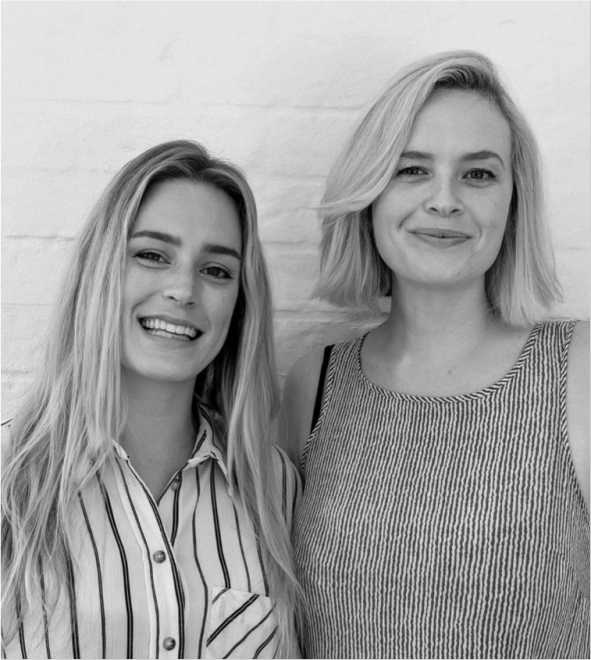How We Came To Realise The Hypocrisy Of Australia Day
The debate around Australia Day isn't new, but it's about time we started listening.

This week Junkee is publishing a series, produced by young Australian writers, called “This Is Why I Don’t Celebrate Australia Day”.
–
January 26, 2018 marks the 80th anniversary of the ‘Day of Mourning’ declared by Aboriginal elders who spoke out against the “Whiteman’s seizure” of Australia in 1788. The discussion around changing the date or meaning of ‘Australia Day’ is not a new debate, but the greater resonance it’s having is a sign that we’re finally starting to listen to Indigenous voices.
As two white chicks from a small-ish coastal town, we acknowledge that growing up we were extremely ignorant of the issues facing Indigenous Australians. Our schools and shopping centres were a sea of white, and we only experienced different faces and cultures on rare trips to the big smoke. We lived sheltered, small lives.
It wasn’t until we decided to spend our gap year working smack bang in the middle of the desert in Yulara, the town next to Uluru (or as the big bosses like to call it the “Voyages Ayers Rock Resort”), that our eyes were finally opened. We flew into Yulara in February, 2008, just eight months after the Northern Territory National Emergency Response, more commonly referred to as “the intervention”, was implemented.
Our induction included the usual sexual harassment and bullying spiel, but a big chunk of time was dedicated to threatening us with obscene fines if we were to sell or supply alcohol to the Mutitijulu community. Things got really uncomfortable for both of us while working at the pub, having to refuse service to anyone who wasn’t a staff member or guest of the resort – in other words, the Aboriginal residents. On multiple occasions we witnessed Indigenous people being escorted from the hotel grounds. This blatant mistreatment and paternalism was enraging, and gave us a tiny insight into the daily life of an Aboriginal person in modern Australia.
Why Australia Day Is A Day Of Shame
We usually spend our Australia Day the same way most people do; drinking schooeys and eating sausages, but our BBQs are served with a side order of shame. January 26 doesn’t fill our hearts with national pride. And according to a recent survey by the Australia Institute, 56 percent of Aussies agreed that “they didn’t really mind when Australia Day was held as long as we have a day to celebrate being a nation”. It also found almost half the respondents (49 percent) agreed that Australia Day should not be on a day that is offensive to Indigenous Australians. So as a nation, we should ask ourselves what is it that we are actually ‘celebrating’?
January 26 was initially put forward by the Australian Natives Association (a group of First Fleeters) in 1935. The original Australia Day was held of the 30th of July 1915 and only came about when Mrs Ellen Wharton-Kirke of Manly, mother to four young soldiers, suggested a fundraising event to support the war effort. The public opened their wallets, raising nearly 750,000 pounds, but more significantly our national identity was solidified. We were a unified front — if you were white.
Three years after the ANA called for a celebration to be held on January 26 Indigenous elders began to mark it as a day of mourning, to protest the atrocities and mistreatment they had suffered since white invasion.
We have all been fed the same old story by the Australia Day Council: that January 26 is a day for everyone, that it’s all about a BBQ, a couple of cold ones and great Aussie mateship. But how can we clink our schooners together in celebration when a portion of our population is in mourning? That date, of all dates, when all of their suffering began, we are supposed to merrily scull our beers and chant “Oi, Oi, Oi”?

Imogen Hogan and Nell Matzen.
We don’t know about you, but thoughts of dispossession, genocide, oppression and stolen children don’t really put us in the celebratory mood.
Australia is a beautiful country that we are proud of, but it is outright hypocritical to celebrate a nation that boasts inclusion and multiculturalism on a date that is the definition of exclusive.
Taking “Australia Day” from old Mrs Wharton-Kirke and her nationalism-fundraising event and slapping it on January 26 is a way of signifying to Indigenous Australians that we don’t care that this date marks the anniversary of the slaughter of their ancestors. But we do care, don’t we?
Is Change Finally Coming?
Up until now we have been all talk and no action, but it seems change is upon us. With fiery debates on Q&A, countless think pieces in all major papers and triple j moving their iconic Hottest 100 countdown to a different date, we are on the cusp of a major cultural shift. If our current political leaders sitting in Canberra refuse to show leadership on this issue, then our generation is ready for practical change, not just symbolic gestures.
We are proud Australians. We simply believe it is important to remember how we got here, and the suffering we have caused on the way. We know changing the date won’t change history, but we believe changing the date can be a gesture of recognition, remorse and respect. If we can’t begin with making small compromises as a nation with First Australians, then how are we going to bring about big achievements like a treaty?
We stand with Indigenous Australians not just on January 26, but every day. Their voices are now amplified and we should listen.
–
Imogen Hogan grew up on the Central Coast and is now a criminal defence solicitor practicing in Sydney.
Nell Matzen is a Central Coast based writer and budding journo.
–
Feature image via National Museum of Australia


